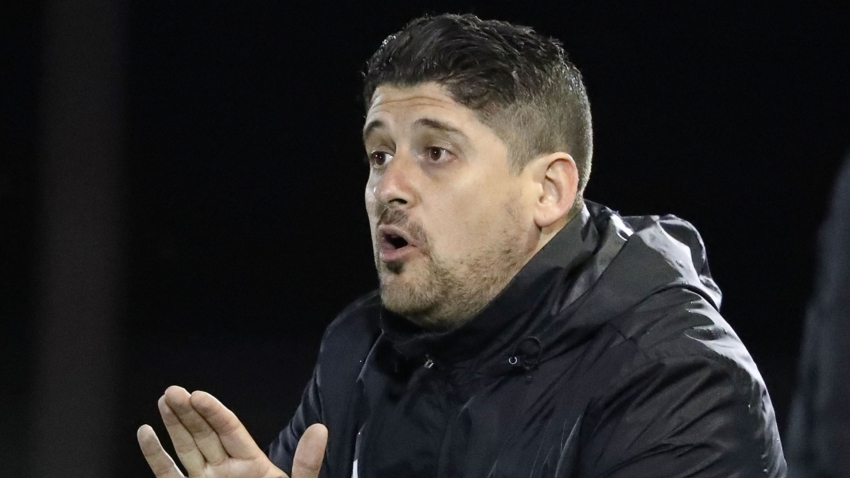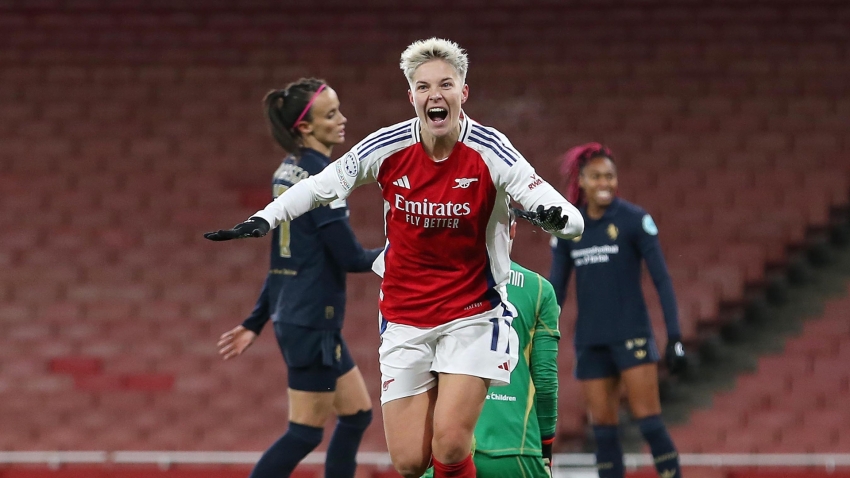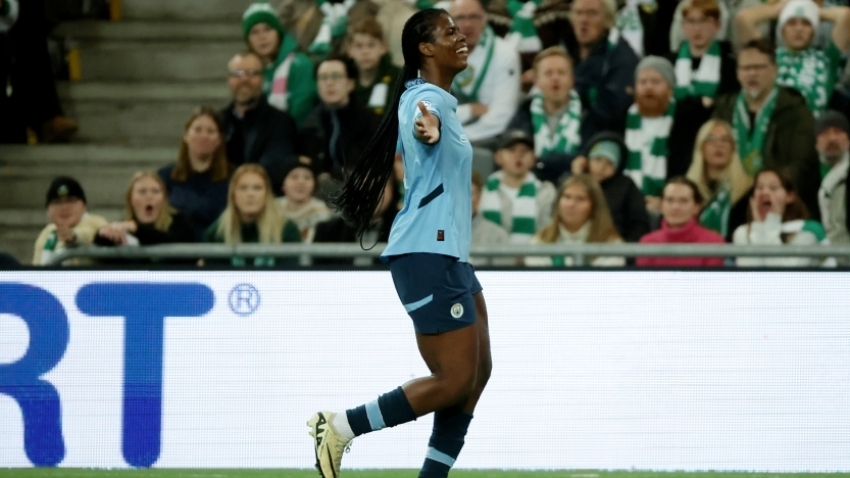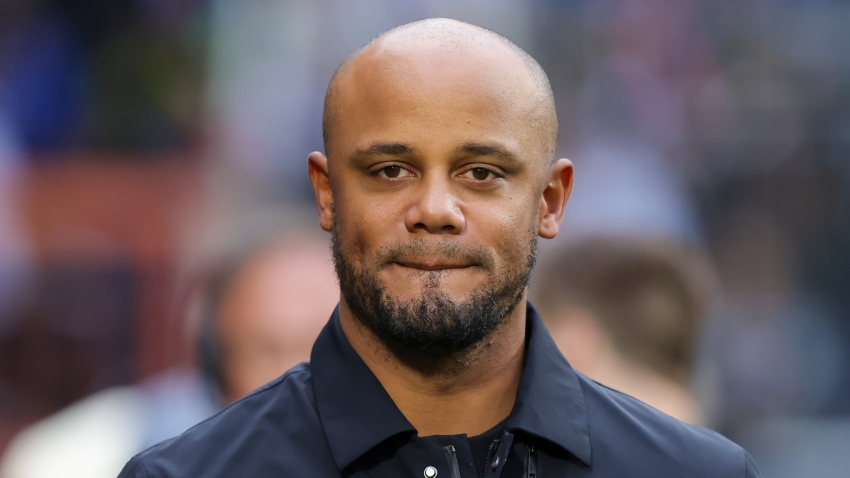"I want people to talk about the football and say, 'there was that team that Newcastle had and we loved going to watch them play, it was exciting and they always had it go'", says Newcastle Jets head coach Arthur Papas.
There are so many similarities between Papas and Australian trailblazer Ange Postecoglou, who is now embarking on his journey as manager of Scottish giants Celtic.
Postecoglou has an unrelenting belief in his philosophy, with an emphasis on a high-octane style of attacking football. Papas is no different.
That entertaining football delivered Yokohama F.Marinos their first J1 League crown in 15 years in 2019. Papas was Postecoglou's assistant during two highly successful seasons in Japan.
After almost 10 years and priceless journeys across India, Saudi Arabia and Japan, Papas is back in Australia and in the Hunter Valley, this time as coach of Jets.
Papas – who spent less than a year as an assistant with the Jets in 2011-12 – is Down Under to be closer to family, having been appointed head coach of J3 League outfit Kagoshima United in December.
The 41-year-old is now tasked with restoring the glory days to McDonald Jones Stadium, where the 2008 A-League champions have fallen on tough times.
Newcastle have missed the finals for the past three seasons, finishing seventh in 2019, eighth in 2020 and 11th in the 12-team competition last season.
"We're all aiming for success," Papas told Stats Perform. "I'm not in this just to get into the finals. That's not enough, the bar isn't low. There's no ceiling with what I want to achieve with this club. There shouldn't be. Anyone who puts a ceiling on it straight away has basically cancelled any ambition of where you could go.
"But, the main thing is I want people to talk about the football and say 'there was that team that Newcastle had and we loved going to watch them play, it was exciting and always had it go and okay, didn't get it right every time', but they could resonate with our football and they don't forget that. If we're able to achieve that, we would have done something special. Normally, if you have achieved that, you also would've got pretty close to being quite successful in terms of results."
Papas added: "You can be in a club where you're playing exciting football, but there's nothing better than having that in front of 10-15,000 people. The difference is in this league, you can also have teams that could do that but not attract that support. For me, the big reason is the supporters of the club because I know when this place gets it right, it's one of the most difficult places to come in the A-League, the strongest support and genuinely get behind the team.
"They've had some lean years but that's why the challenge is so great. You don’t want to be doing it in front of an empty stadium. It's going to generate momentum for us. It's going to take a bit of time because the football I like to play doesn't happen overnight, but it's going to happen because I'm so clear in how I work and the vision I have for how to build teams and play a certain brand of football. Then the idea is we're all connected and doing it together, including the whole region."
Since reaching the 2018 A-League Grand Final, the Jets have a 30 per cent winning percentage in the competition – Central Coast Mariners (25 per cent) are the only team with a lower win rate than Newcastle across the last three seasons.
The Jets have had an expected goals (xG) per game value of 1.6, the sixth-most of any team in the last three seasons; however they have scored 33 goals fewer than their xG suggests they should have – by far the largest negative difference of any team in the competition in that time.
"It's a really interesting job in terms of A-League context," Papas said. "Maybe every five or six years there's a good year and then it really falls away. There's so many reasons for that I'm sure. There's been constant talk about the ownership model, which hasn't created the stability that the club and region deserve.
"It's the kind of thing that I normally do, put myself in really difficult situations and relish those challenges. I believe we can do something special there."
Newcastle have won only 19 points from losing positions in the last three seasons of the A-League – the joint-fewest of any team among those to have participated in all three campaigns (Macarthur FC - 10pts).
The Mariners (92) and Jets (96) are the only teams to have participated in each of the last three A-League seasons but scored fewer than 100 goals across them.
Former boss Carl Robinson (60 per cent) – now in charge of Western Sydney Wanderers – is the only man to have won at least one third of his games as manager of the Jets across the last three A-League seasons.
But Papas has already set out to rebuild the Jets, luring Cameron Devlin, eight-time Australia international Matthew Jurman, Dane Ingham and Mohamed Al-Taay to the club, while boosting his staff with the arrivals of Arthur Diles, Huss Skenderovic and Riccardo Marchioli.
"It always has to be aligned to the vision I have for how we want to play and behave," Papas said. "No disrespect to anything been happening there, it's more about when you come in, you need as many people on the bus as possible to move in the same direction. I don't really compromise any part of how I see football being played, to be successful and winning teams. It's more identifying characters and kind of characteristics to play that type of football.
"The main thing is we need certain physical and technical profiles and certain characters. I know it sounds a bit cliché but after you speak to different people, I'm confident we've done some good business so far."
"The main part for me is we have a certain culture within the staff and competency to deliver a world-class program, that is really the goal," he continued. "To deliver an environment and program that players come and all they think about is today I'm going to get better and how am I going to get better and our staff are driving that daily. I feel, amongst improving players, I have a greater job than that and it's about how do we align the staff and improve those areas to make sure players come in and know they're coming into a special environment. We will create that because I have experiences now, I've seen it first-hand at the best levels in Asia under one of the best managers in the world and that's added layers to my coaching I'm sure. I'm constantly trying to grow and improve, which I've done from day one."
Papas is relying heavily on data to shape his team and turn the Jets into title contenders, adding: "It's part of the story for me and how we work. We utilised it extremely well in Japan. It depends on resources also. I'm not big on using data for data.
"I've developed a model over time that is specific to giving us ideas on what makes our game tick or not. We can use some of that to quantify what's happening but at the end of the day, it's not going to give you a total picture. It just gives you a framework. It's an evidence-based research in essence. It's very difficult for managers to do this because we get caught up in the emotions of that result on Saturday and that result evidently defines us but doesn't always show a true reflection of what's really happening.
"We've won games at times where I thought we weren't really where we needed to be and our data didn't actually stack up in terms of what we define as a game where we were strong across all areas. Other games, you lose and can't work out how you lost because you have a certain about of ball possession, expected goals … what do you do with these situations as well? I have certain data which I consistently refer to, whether it's physical or technical, that gives me a clear reflection of if we're on track or not."
Papas, who brings vast experience to the Jets and the A-League, returns to Australia at a time when calls for a national second division grow louder.
Beyond the A-League, Australian football currently relies on clubs in eight separate National Premier Leagues (NPL) as part of a mainly semi-professional second tier.
The Association of Australian Football Clubs (AAFC) has already detailed their plans for a national second division amid hopes it could be introduced by the end of 2022.
As nations across Asia continue to invest and improve, Papas – who has coached India's Under-23 team, Pailan Arrows, Dempo and worked as an assistant for Saudi side Ettifaq FC and NorthEast United – said: "In terms of resources, I don't think we're competing at all.
"I've had some interesting stuff come to me over this period of coming back to Australia. I was working in J3 for example and people weren't sure if that was even full-time or not. I was a bit surprised by the naivety of that question because I had 11 full-time staff around me. The office has 30-plus people working around the clock. The resources available you can't even imagine and that goes all the way down to their academy systems. The important thing is you need to know what's happening out there. Between Saudi Arabia, Japan and the Indian Super League, they're all ranked in the top-eight leagues in Asia right now and I've been through all of them.
"I've got to see so many parts of why Asia is progressing and I think we're still progressing at our own speed. The difference is the speed of it, are we progressing at the same speed at some of the other countries? Are we able to resource our leagues and academies at the same level? We have huge difficulties in establishing a second division as an example. In Japan, they have over 50 full-time professional clubs, so the opportunities are so much more available for young players. The problem is here, when you're not at a professional level, the drop is too big and it doesn't compare. Over time, it just makes the gap wider and wider. That is why it's important to think about creating a second division because it will create opportunities. Not only opportunities for players but for staff, administrators, coaches. Our ecosystem keeps growing and growing, and that's when you're finding people are climbing up the chain.
"Unfortunately there's just not enough opportunities and that's what prompted a lot of my choices in terms of my career. It's no disrespect to the NPLs etc, but it's so far away from what happens and professional level. The longer you stay at that level, the harder it is to think you can just jump to the next level."

































